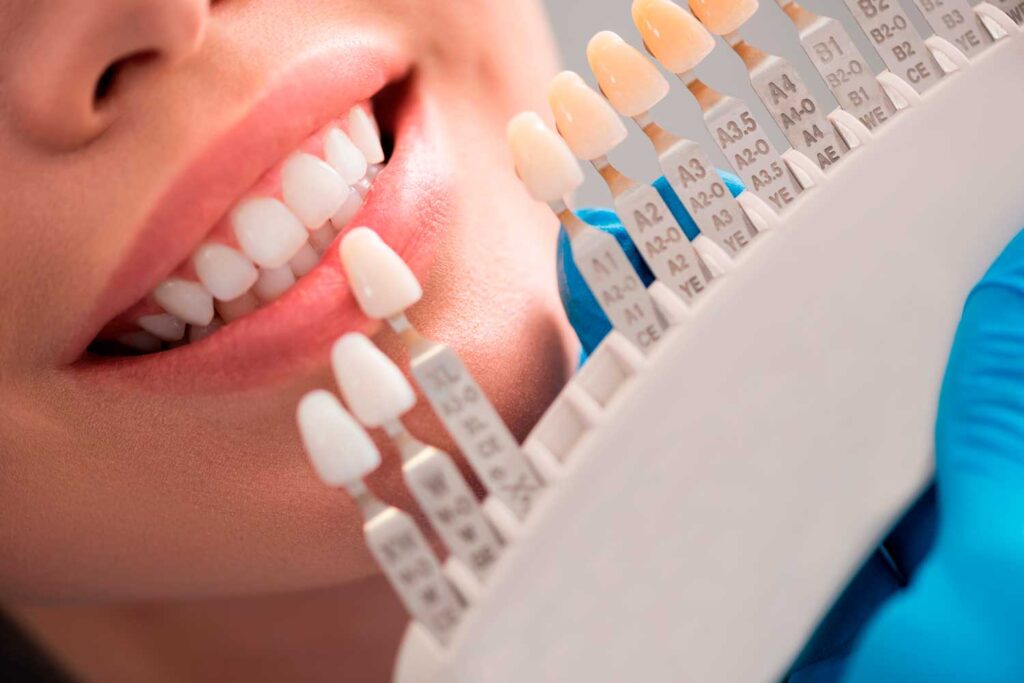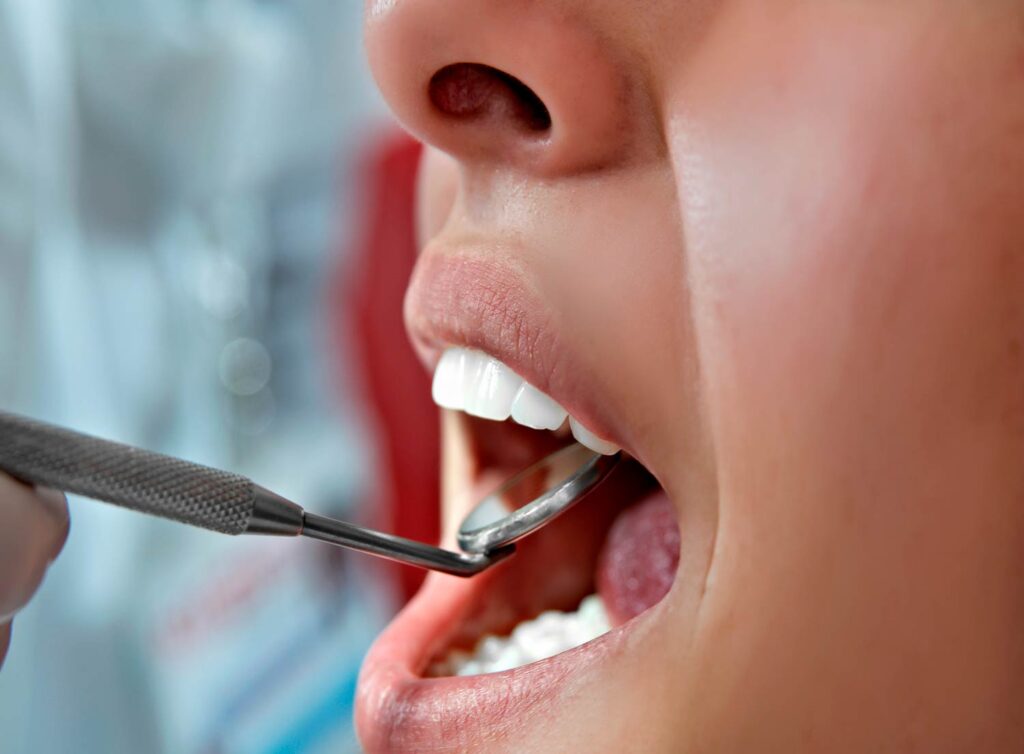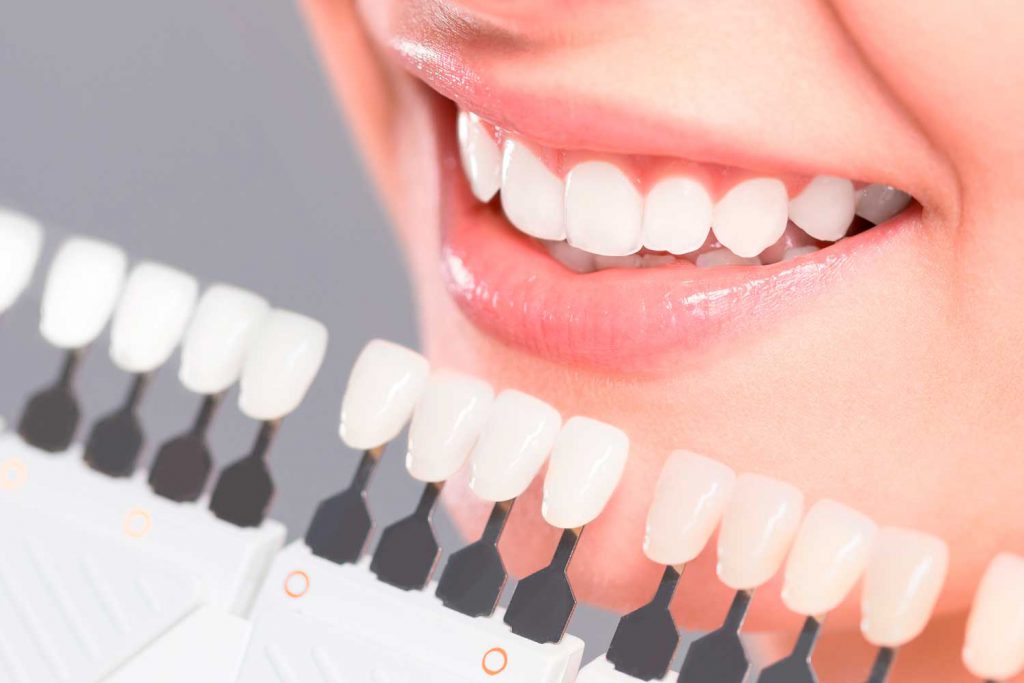A smile is a universal language that speaks volumes about an individual’s confidence and personality. However, dental issues like decay, fractures, or discoloration can compromise not just the appearance but also the functionality of teeth. This is where dental crowns come into play as a reliable solution, offering both aesthetic enhancement and structural support. Whether it’s to protect a weakened tooth, restore a broken or discolored teeth, or even enhance the overall appearance of your smile, dental crowns provide a versatile remedy.
We specialize in a variety of dental crown options, including Zirconia and Porcelain Crowns, which are among the materials we offer and recommend, however, we encourage you to contact us for a personalized evaluation and discussion about the best crown material for your specific situation.

What Are Dental Crowns?
Dental crowns, also known as caps, are custom-made prosthetic restorations placed over damaged or weakened teeth. Crafted from various materials such as porcelain, ceramic, metal alloys, or a combination, these crowns encase the visible portion of the tooth, restoring its shape, size, strength, and improving its appearance.
Types of Dental Crowns:
- Porcelain or Ceramic Crowns: Mimic the natural color and translucency of teeth, making them an excellent choice for front teeth restoration due to their aesthetic appeal.
- Metal Crowns: Typically made of gold or other metal alloys, they offer remarkable durability and are suitable for molars where their appearance is less of a concern.
- Porcelain-Fused-to-Metal (PFM) Crowns: Combining the strength of metal with the aesthetics of porcelain, these crowns are a popular choice for compromised teeth that need both strength and a natural appearance.
- All-Resin Crowns: Cost-effective but less durable than other options, these crowns are more prone to fractures and wear.
- Zirconia Crowns: Known for their strength, durability, and aesthetics, these crowns are increasingly preferred for their natural look and robustness.
When Are Dental Crowns Used?
- To Protect Weakened Teeth: After a root canal treatment or significant decay, a crown protects the remaining tooth structure from further damage.
- Restoration of Broken or Fractured Teeth: Crowns can restore teeth that have been fractured due to accidents or extensive decay.
- Cosmetic Enhancements: Discolored, misshapen, or poorly aligned teeth can be enhanced aesthetically with dental crowns.
- Support for Dental Bridges: Crowns are used as support structures for dental bridges, replacing missing teeth.
The Dental Crown Procedure:
- Consultation and Examination: The dentist assesses the tooth, takes impressions, and discusses the treatment plan, including the choice of crown material.
- Tooth Preparation: The tooth is prepared by removing a layer of its outer surface to accommodate the crown.
- Impressions: Detailed impressions of the prepared tooth and adjacent teeth are taken to ensure a precise fit for the crown.
- Temporary Crown Placement: While the permanent crown is being fabricated in a dental laboratory, a temporary crown is placed to protect the prepared tooth.
- Permanent Crown Placement: Once ready, the permanent crown is cemented onto the tooth, ensuring proper fit, function, and aesthetics.
Benefits of Dental Crowns:
- Restoration of Functionality: Crowns restore chewing ability and prevent further damage to weakened teeth.
- Enhanced Aesthetics: They improve the appearance of teeth, boosting confidence and smile aesthetics.
- Longevity: With proper care, dental crowns can last for many years, providing a durable solution.

Caring for Dental Crowns:
Maintaining good oral hygiene practices, such as regular brushing, flossing, and routine dental check-ups, is essential for the longevity of dental crowns. Avoiding habits like chewing hard objects or opening packages with teeth can help prevent damage to the crowns.
Conclusion:
Dental crowns serve as versatile solutions for various dental issues, offering both functional restoration and aesthetic improvement. Whether it’s for protection, restoration, or cosmetic enhancement, dental crowns play a vital role in preserving oral health and revitalizing smiles.
If you’re considering dental crowns, get a free consultation here to understand the best options suited to your specific needs and embark on a journey towards a healthier, more confident smile!





